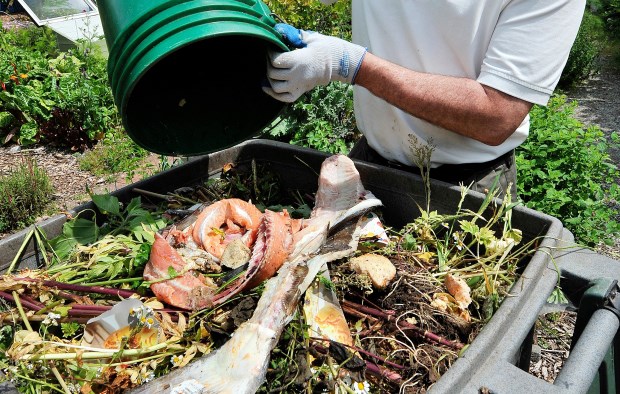Don’t toss mom’s steamed, unbuttered brussel sprouts in the garbage; doing so will soon cost you money.
And, a recent pilot project on organics collection indicates many of those sprouts, to date, are still ending up in the landfill.
Metro Vancouver municipalities will soon ban the disposal of food scraps in the garbage as a result of a region-wide effort to reduce trash and increase recycling.
As a result, the City of Richmond will soon implement a citywide organics collection program at an estimated cost of $1 million per year.
The city already provides organics recycling at single-family homes and townhouses and is now looking to expand the program to apartments and commercial buildings.
On Wednesday at a public works committee meeting, the city reported a 27 per cent reduction in garbage over the past year for a pilot project with apartments and commercial buildings.
The organics program will soon expand to the estimated 32,000 residential units in 700 complexes that are currently not serviced by the city for organics collection.
The pilot project found a total waste diversion rate of 50 per cent, up from 31.5 per cent.
Blue cart recyclables accounted for 21.4 per cent of waste diversion, cardboard for 10.1 per cent and organics for 18.5 per cent.
That means multi-family home residents still can do better, as the city claims on its website that “about 39 per cent of waste disposed by multi-family residents is compostable food scraps.”
Metro Vancouver’s waste diversion goal for 2015 is 70 per cent, something single-family homes in Richmond achieved this year.
The pilot project found each multi-family unit diverted about four kilograms of organic waste every month.
The Metro Vancouver organics disposal ban in garbage starts Jan. 1.
Come July 1 waste collectors (whose services are paid for by homeowners) with garbage loads containing 25 per cent of food scraps will be levied a 50 per cent surcharge. Come 2016, that same penalty will apply to any garbage load with five per cent food scraps, according to the city’s report.
Regional planners contest that recycling organics uses less space and reduces methane gas at the landfill. Doing so also makes waste-to-energy processes more efficient (Metro Vancouver wants to build a new waste incinerator). Also, organics can be converted into fertile soil.
Residents living in condos and apartments without curbside pickup will need to collect their organic waste — meat scraps, fruit peels, pizza boxes, mom’s aforementioned brussel sprouts — in bins or paper bags and dispose of them at the strata’s waste collection room.
The city is expected to provide collector bins that it will pick up on a weekly basis. Or, the city will leave organics recycling to the strata council if it can “suitably demonstrate an alternative,” according to the report.
A strata could, in theory, make other collection arrangements or create a compost system unto its own, effectively skirting potential disposal charges.



